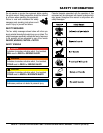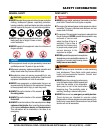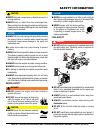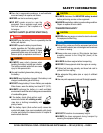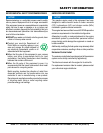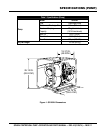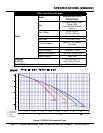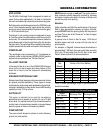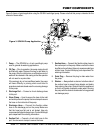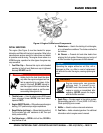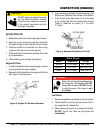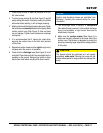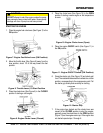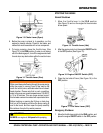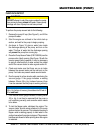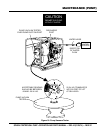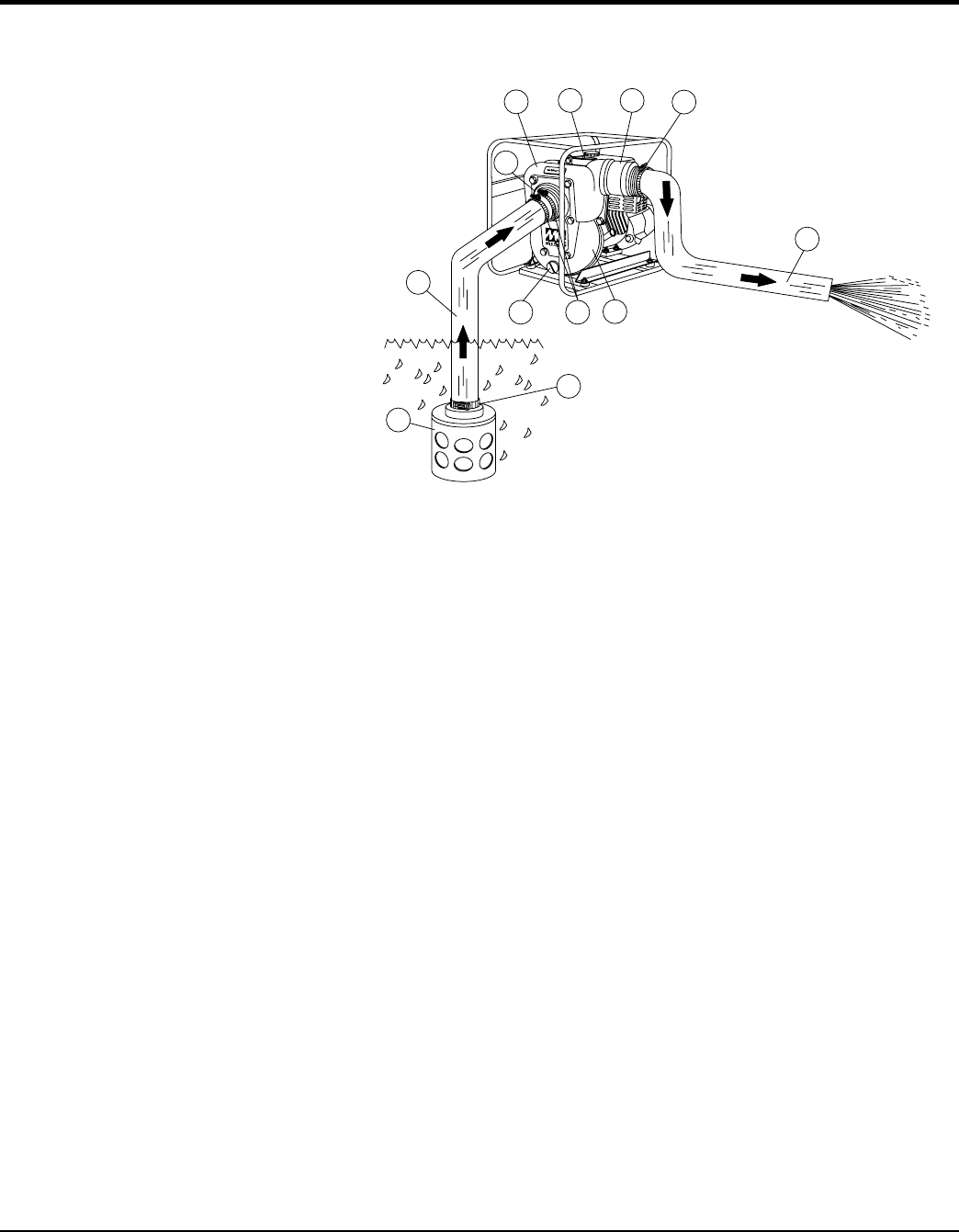
PAGE 14 — QP402H CENTRIFUGAL PUMP • OPERATION AND PARTS MANUAL — REV. #2 (01/29/14)
PUMP COMPONENTS
Figure 3 shows a typical application using the QP402H centrifugal pump. Please note that this pump is intended for the
removal of clean water. .
7
4
9
5
8
2
4
1
3
6
6
4
Figure 3. QP402H Pump Application
1. Pump — The QP402H is a 4-inch centrifugal pump
used in general de-watering applications.
2. Fill Cap — Prior to operation, the pump casing should
be filled with water. Remove this cap to add water to
the pump. After the initial prime, a sufficient amount of
water will be retained in the casing so that the operator
will not need to re-prime later.
If the casing is dry or has insufficient water, the pump
will have difficulty in priming which could lead to
premature mechanical seal wear thus causing damage
to the pump.
3. Discharge Port — Connect a 4-inch discharge hose
to this port.
4. Worm Clamp — Used to secure the hose to the inlet
and outlet ports on the pump. Use two clamps to secure
the hose on the inlet side of the pump.
5. Discharge Hose — Connect this flexible rubber
hose to the discharge port on the pump. Make sure
that the hose lays flat and is not kinked. Use only
recommended type discharge hose. Contact Multiquip
parts department for ordering information.
6. Suction Port — Connect a 4-inch inlet hose to this
port. Use two worm clamps to secure the hose.
7. Suction Hose — Connect this flexible rubber hose to
the suction port on the pump. Make sure that the hose
lays flat and is not kinked. Use only recommended type
suction hose. Contact Multiquip parts department for
ordering information.
8. Drain Plug — Remove this plug to drain water from
the pump.
9. Strainer — Always attach a strainer to bottom side of
the suction hose to prevent large objects and debris
from entering the pump. Strainer should be positioned
so that it will remain completely under water. Running
the pump with the strainer above water for long periods
can damage pump.



